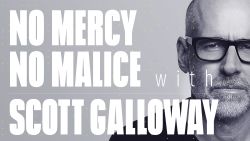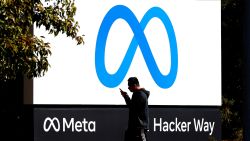Patagonia, the outdoor apparel brand, said it will join a growing advertising boycott of Facebook and Instagram being led by a coalition of civil rights groups.
The boycott, which is known as #StopHateForProfit, was driven by Facebook’s failure to act against “hateful lies and dangerous propaganda,” the company said.
The boycott will begin “effective immediately,” it said, adding it will last “at least” through the end of July.
Patagonia’s announcement marks the fourth major brand in recent days to join the boycott, which is being organized by civil rights and activist groups. On Friday, The North Face, REI and Upwork all said they would be joining the effort and suspending advertising on Facebook for the month of July.
“From secure elections to a global pandemic to racial justice, the stakes are too high to sit back and let the company continue to be complicit in spreading disinformation and fomenting fear and hatred,” Patagonia said in a series of tweets. “As companies across the country work hard to ensure that Americans have access to free and fair elections this fall, we can’t stand by and contribute resources to companies that contribute to the problem.”
In a statement to CNN on Friday, Carolyn Everson, VP of Facebook’s global business group, said: “We deeply respect any brand’s decision and remain focused on the important work of removing hate speech and providing critical voting information. Our conversations with marketers and civil rights organizations are about how, together, we can be a force for good.”
The civil rights coalition, which includes the Anti-Defamation League (ADL) and the NAACP, is calling on major corporations to put a pause on advertising on Facebook in July over what they say is a “repeated failure to meaningfully address the vast proliferation of hate on its platforms.”
The coalition launched the #StopHateforProfit campaign last week with a full-page ad in the Los Angeles Times.
The group said that Facebook has allowed incitement against protesters fighting for racial injustice in America, refused to adequately protect users from online threats, failed to recognize and remove Holocaust denial as a form of hate, and allowed its platform to be used in voter suppression efforts that targeted Black voters.
“We have long seen how Facebook has allowed some of the worst elements of society into our homes and our lives,” ADL CEO Jonathan Greenblatt said in a statement. “When this hate spreads online it causes tremendous harm and also becomes permissible offline.”
He said the organizations had tried to “push Facebook to make their platforms safer,” but said the company “repeatedly failed to take meaningful action.”
“We hope this campaign finally shows Facebook how much their users and their advertisers want them to make serious changes for the better,” Greenblatt wrote.
Facebook targets Trump ads
Facebook last week said it had taken action against ads run by President Trump’s re-election campaign for breaching its policies on hate. The ads, which attacked what the Trump campaign described as “Dangerous MOBS of far-left groups,” featured an upside-down triangle.
The Anti-Defamation League called the triangle “practically identical to that used by the Nazi regime to classify political prisoners in concentration camps.”
“We removed these posts and ads for violating our policy against organized hate. Our policy prohibits using a banned hate group’s symbol to identify political prisoners without the context that condemns or discusses the symbol,” Andy Stone, a Facebook spokesperson, told CNN Business. The hate group to which Facebook was referring in its statement is Nazis, the company confirmed.
The Trump campaign claimed the red triangle was “a symbol widely used by Antifa,” and pointed CNN Business to several links to poster, sticker, and magnet websites that sell unofficial merchandise designed by their users that contains the symbol. The campaign did not point to any examples of antifa activists wearing the symbol.
The ADL said Thursday that some antifa activists have used the symbol, but it is not particularly common.
What Zuckerberg has said
With protests and civil unrest in parts of the country, Facebook CEO Mark Zuckerburg said in a statement posted on his personal page on June 5 that the company would review its policies regarding state use of force, voter suppression and content moderation.
“To members of our Black community: I stand with you. Your lives matter. Black lives matter,” Zuckerburg wrote, addressing the civil unrest taking place across the US.
Zuckerberg and his wife, Priscilla Chan, said last week they were “disgusted” by President Donald Trump’s remarks on the nationwide protests against racial injustice, writing, “We are deeply shaken and disgusted by President Trump’s divisive and incendiary rhetoric at a time when our nation so desperately needs unity.”
That statement came days after more than 140 scientists who have received funding and support from the Chan Zuckerberg Initiative penned an open letter to Zuckerberg that urged him to “consider stricter policies on misinformation and incendiary language” on the platform, specifically pointing to Trump’s post on the protests that read, “when the looting starts, the shooting starts.”
CNN’s Donie O’Sullivan, Rishi Iyengar, Michelle Toh and David Goldman contributed to this report.


























